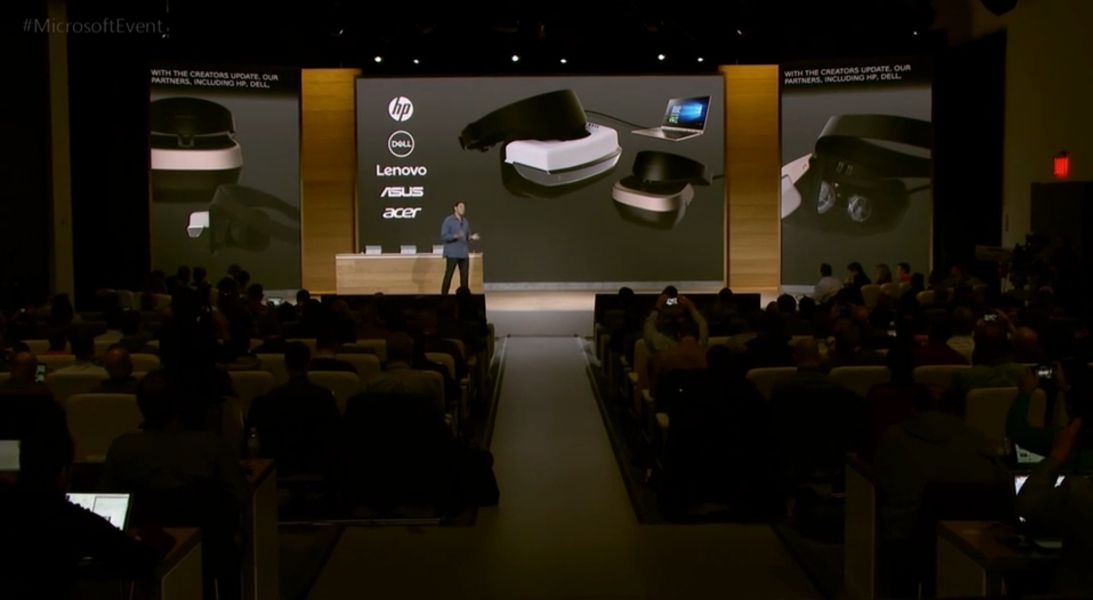Microsoft announces several partnerships with hardware manufacturers including HP, Dell, Lenovo, Asus, and Acer to develop VR headsets for Windows 10.
Microsoft's interest in virtual reality has been self evident over the past few years, though many figured the interest was focused on opportunities to bring VR to the Xbox. The company has since denied targeting VR on Xbox, however it seems Microsoft is moving in a different direction. Microsoft has announced that the company has made several partnerships with hardware manufacturers to develop VR headsets for Windows 10. Partners include HP, Dell, Lenovo, Asus and Acer, each developing their own take on a modern affordable VR headset.
Two actual headsets were shown by Microsoft during the announcement, each of which bore similar structure and technical features. Exact specifications weren't released, but it's clear Microsoft wanted to convey several specific details. First is rather straight forward -- the price. Microsoft wants to sell these headsets at $299, perhaps establishing an expected price for a mid-tier VR headset. Next is that these headsets will be built around the HoloLens framework as "Windows 10 Creators Update" accessories. That basically means they include voice commands and hand gestures.
The core feature shown was that these headsets feature inside-out tracking. Inside-out tracking allows the user to move forwards, backwards, side-to-side, and up and down without the need for cameras or tracking stations like the Oculus Rift and HTC Vive require. Oculus has shown off a prototype, the Santa Cruz, with similar technology, but it featured wireless technology, whereas the Windows 10 headsets are tethered. Nevertheless, these Windows 10 headsets feature some impressive as yet unreleased technology.
The two major players in the PC VR environment so far are both Oculus and Valve, with the Oculus Store and Steam respectively. It's within reason to expect Microsoft would create its own storefront for VR software to further capitalize on developing Windows 10 VR headsets. There's always the possibility that Steam or the Oculus Store might work to support these new headsets on their storefronts, but it's probably not worth betting on.
This announcement is poised as a move to establish Microsoft in the VR market. The question is: where does Microsoft go next? VR seems like a realistic possibility for the Xbox Scorpio, the company's in-development console upgrade to the Xbox One. A $300 headset for the Xbox Scorpio would compete well with Sony's PlayStation VR. To move in on the PC market, Microsoft is currently teasing content related to its "Creators Update," but games would likely have to follow.
Is Microsoft funding VR game development? Or do they think they can move in on Steam and the Oculus Store based on the widespread use of Windows 10 alone? Interesting times lie ahead in the VR scene.
Additional details regarding the Windows 10 line-up of VR headsets will like be revealed in the future. No release dates or actual retail products have been fully unveiled as of yet.
Source: VentureBeat

